The Top 7 historically inaccurate historical games
Wait, that's not how it happened!
5. Rome: Total War
It’s one thing to create a historically inaccurate game. It’s quite another to create a game that’s considered accurate enough to be used as a visual aid by the History Channel (with some modifications), and which then draws so many complaints from history enthusiasts that a group of them get together to correct your “mistakes.”
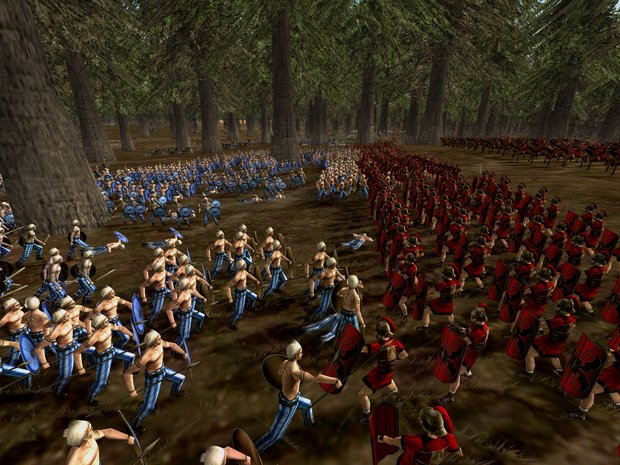
Above: When you think about it, team sports have really diminished our ability to follow ancient battles
From a historical perspective, Rome: Total War was an interesting beast, sometimes lavishing exacting accuracy on minor details while completely re-inventing major ones in the name of fun gameplay. Its version of Rome was divided into three separate factions, its depiction of Egypt’s armies was about a thousand years out of date, boundaries of empires were redrawn to be inconsistent with the time period, and anachronistic units and armaments were present all around. And that’s to say nothing of its units, which apparently performed much more quickly and efficiently than their real-world counterparts ever did.
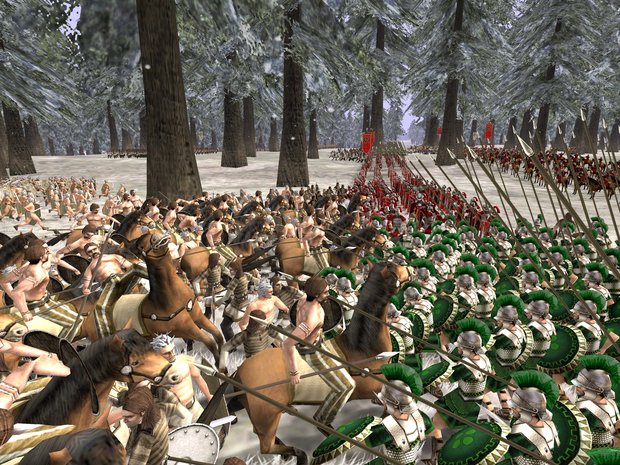
Above: Yep, probably no bright-green Legions back in the days of Caesar
Was it more fun that way? Probably. Did the bulk of the game’s audience really care? Probably not. However, it infuriated the hell out of history buffs, some of whom banded together to create the Rome: Total Realism mods, which brought everything from unit capabilities to faction colors in line with reality, making for a more historically sound experience at the expense of things like brisk pacing.
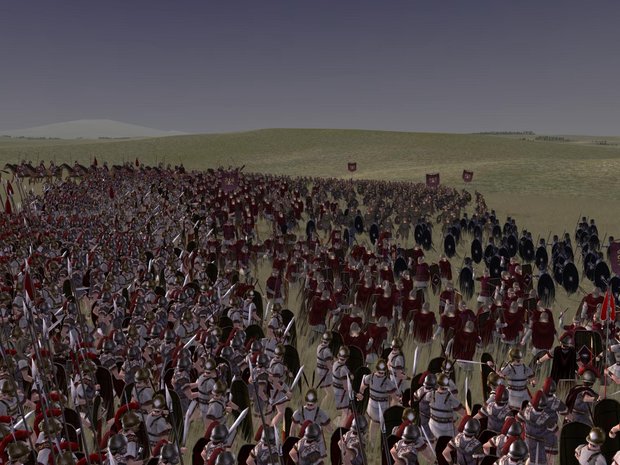
Above: It's kind of hard to tell who everyone is in RTR, but hey - realism!
4. The Saboteur
Never mind the ridiculous accents, the sexy Nazi women in low-cut uniforms or the Wehrmacht soldiers who throw down against an enemy agent using just their fists. Never mind the strippers, the cartoonish French Resistance fighters, or the way that breaking Nazi control over sections of Paris restores color to them. We can accept all that in the name of this being a silly romp that’s more about making things go boom than it is about re-creating a point in history. However, there’s one thing we can’t accept, and that’s rewriting the beginning of World War II for no clear reason.
Weekly digests, tales from the communities you love, and more
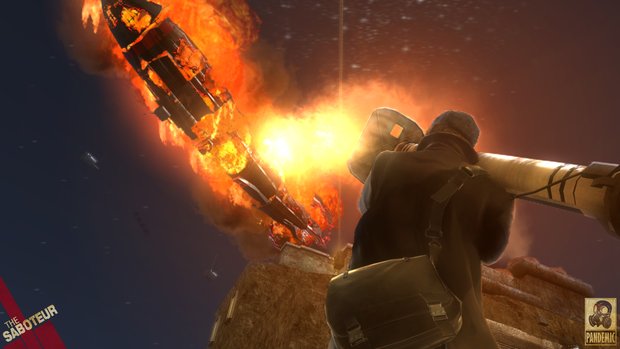
Above: On the other hand, it let us do things like this, so maybe we shouldn't complain
In real life, World War II began (in Europe, at least) in September 1939, when Germany, led by Hitler, annexed and invaded Poland, forcing Polish allies Britain and France to declare war shortly afterward. France was invaded eight months later, after Germany conquered Belgium and cut through the Ardennes Forest to skirt around France’s fearsome Maginot Line – a series of machine-gun nests, bunkers and anti-air emplacements that spread across the Franco-German border. By this time, of course, the war was already in full swing, and the invasion was hardly unexpected.
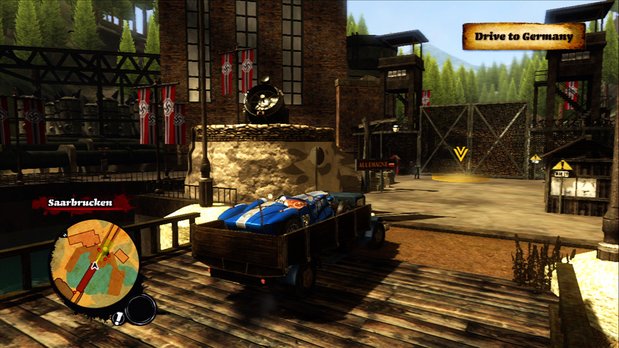
Above: When the German side of the border is more heavily fortified than the French one in 1940, something's not quite right
The Saboteur’s version of the war, meanwhile, begins in 1940, when relations between France and Germany are apparently friendly enough that it’s possible to simply drive over the border to participate in an auto race. Then, fictitious Nazi commanders order the invasion of a completely unprepared and apparently defenseless France. There’s no Poland, no Belgium and certainly no Maginot Line, just the unchallenged Nazis rolling tanks (and zeppelins, which were no longer in service at the time) right over the border, taking out one of WWII’s most significant early combatants before the war really even begins.
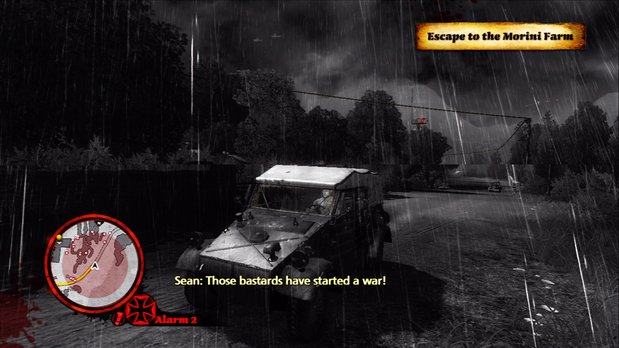
Above: "Faith 'n' Begorrah, if only we could've seen it comin' somehow!"
Yeah, we get that this is hardly a straight-faced version of history, and that it’s more about two-fisted Nazi-fightin’ than it is about World War II. But taking artistic license doesn’t mean you get to just invent your own version of WWII in which the French are even more pathetic.
3. Robin Hood: Defender of the Crown
OK, yeah, we know: complaining about historical accuracy in a game that stars Robin Hood is asking for trouble. But this game plays such weird havoc with both history and Robin Hood’s (admittedly haphazard) mythology that we just had to include it.
In the game, Robin Hood, while starting out as the familiar bandit of Sherwood, is suddenly thrust onto the national stage when Maid Marian and Wilfred of Ivanhoe convince him to lead a military campaign against Prince John. King Richard the Lionhearted has been captured and held for ransom, and in his absence the paranoid John has seen fit to seize the throne and declare Richard’s supporters traitors. This prompts Robin to conquer England, county by county, in order to wrest it from John and several rival lords to make it safe for Richard’s return. Oh, and while he’s doing that, he’ll need to raise money – through taxation – to pay off Richard’s ransom.
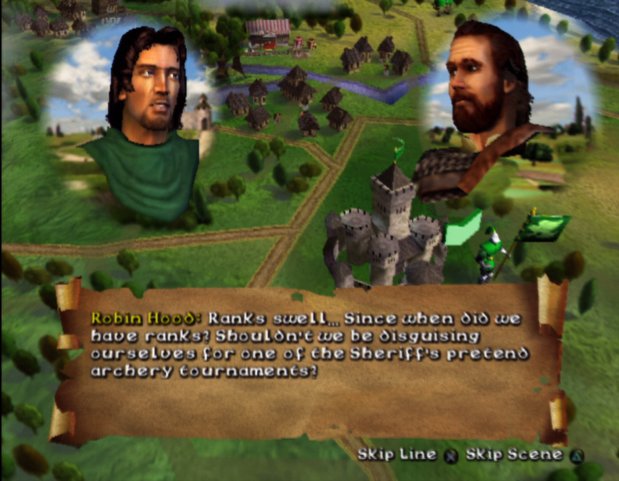
Above: See, even Robin knows something's amiss
In real life, Richard – by many accounts a terrible king who had no interest in governing, spoke only French and treated England as his personal war chest – was indeed captured and held for ransom by Leopold V of Austria, while Richard was returning from the Third Crusade (although this actually happened in late 1192, while the game begins in early 1191). And his ransom was raised through taxation – but they were taxes levied by his mother, Eleanor of Aquitaine, and his brother, Prince John (who also tried to seize the throne, to be fair, but was eventually forgiven by Richard).
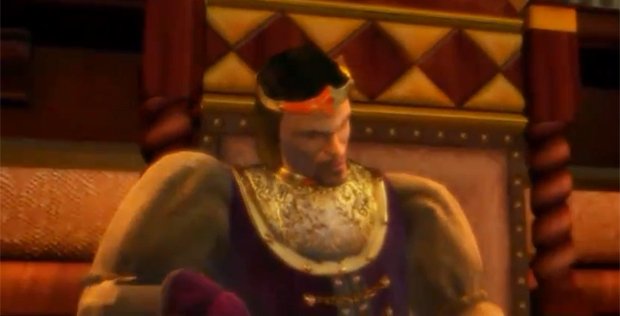
Above: Not that it did much for his disposition or poofy sleeves
Interestingly, those taxes took a harsh-enough toll on the country that they are, in fact, sometimes depicted as what Robin Hood was rebelling against in the first place. That sort of implies that the game makes Robin complicit in the oppression of the lower classes. Shoving that tidbit aside, there wasn’t actually a war for succession while Richard was captive – although some years after Richard’s death, King John’s reign annoyed his vassals enough that it eventually sparked a short-lived rebellion, the First Barons’ War, in 1215.
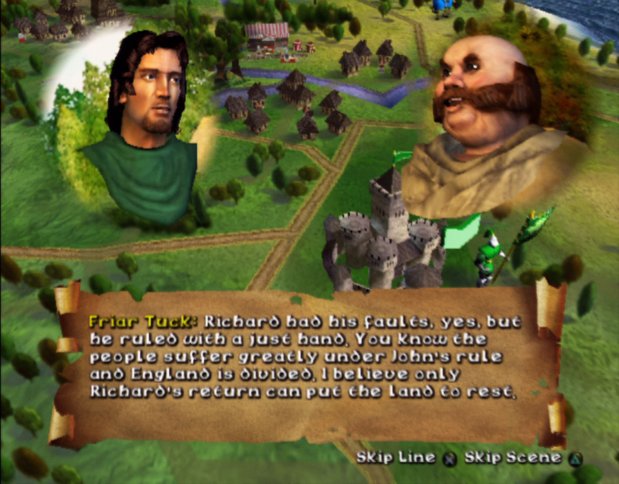
Above: "So yeah, better start taxing the shit outta those peasants, bro"
Robin Hood, for his part, never actually raised an army or made any move to conquer or liberate England, assuming he ever even existed at all. But that’s beside the point.



